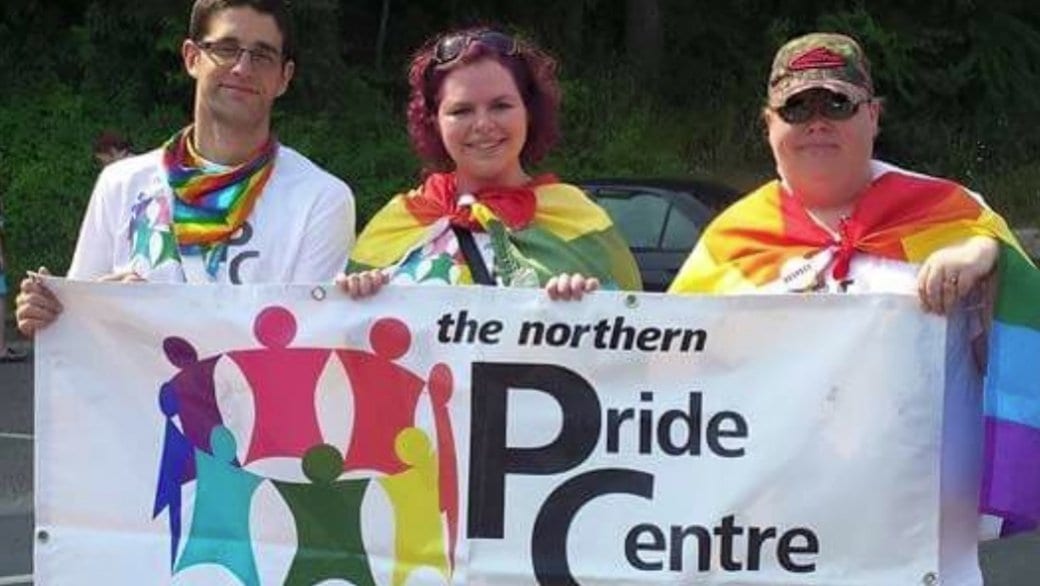Students in Prince George, BC are asking the University of Northern British Columbia to fund their Pride Centre as they fund other student groups.
Krystal Vandenberg, who heads the student-run Pride Centre, says university administrators have so far rejected their requests for funding.
Vandenberg says she asked UNBC president Daniel Weeks in February to cover one part-time staff position for the Pride Centre, which would cost the university $17.50 per hour for 20 hours a week.
“We weren’t looking for full funding,” Vandenberg tells Daily Xtra. But a part-time staff person would help keep the volunteer-run centre afloat, she says. The Pride Centre currently serves about 25 students.
Vandenberg says other campus groups like the Women’s Centre and the First Nations Centre receive annual funding from the university.
Daily Xtra was told that Weeks wasn’t available for comment. But UNBC spokesperson Matt Wood says the president reached out to the UNBC Pride Centre after the Pride flag burning at the University of British Columbia in Vancouver in February.
Wood says Weeks’ outreach opened a dialogue between the two parties about the UNBC Pride Centre’s funding needs.
Vandenberg confirms that Weeks reached out to show solidarity and his support for LGBT people at UNBC following the incident at UBC, but says nothing was determined about funding.
Wood says the Pride Centre “doesn’t necessarily qualify for funding through the traditional channels on campus [because] at one point the Pride Centre was a society but they aren’t now.”
Vandenberg says she was never told the group didn’t qualify. “He [Weeks] said there was no funding available. He didn’t say we were unable to request funding,” she says, surprised.
Vandenberg admits the Pride Centre dissolved its society status last semester when membership fees were proving too costly for the 25-member, strictly volunteer-run group. But there is a greater need for gay resources in northern BC, she says, including at UNBC.
She says many students don’t come out at the small, northern campus “due to high rates of homophobia and transphobia.”
“To have a safe, physical space that LGBTQ students can go to has been proven to decrease feelings of depression and isolation,” she says, “because it creates a social sphere of like-minded individuals who are feeling that same trauma and turmoil and who have the same life experiences.”
Other than one night club in town, a gay-straight alliance youth club and the annual Pride parade, there aren’t a lot of resources for gay people in Prince George, she says.
The Pride Centre is the “only consistent space” for gay university students in the area, she says.
Vandenberg wants to prove to the university’s administrators that the UNBC Pride Centre and its members are worth supporting.
UNBC’s student society agrees. “Everyone on our board agreed that the Pride Centre is a positive and vital resource for the school and the community in general,” says Arctica Cunningham, the academic representative on the Northern Undergrad Student Society.
Cunningham says creating a staff position at the Pride Centre will contribute to its stability and longevity. She says the student society has agreed to help the Pride Centre write an official funding proposal.
“We just really want to make sure that resources are available for a long time to come,” she says.
Wood says the university plans to look at “other funding options” for the Pride Centre.
A meeting between the Pride Centre and the university is now scheduled for Thursday, March 10, 2016.

 Why you can trust Xtra
Why you can trust Xtra


